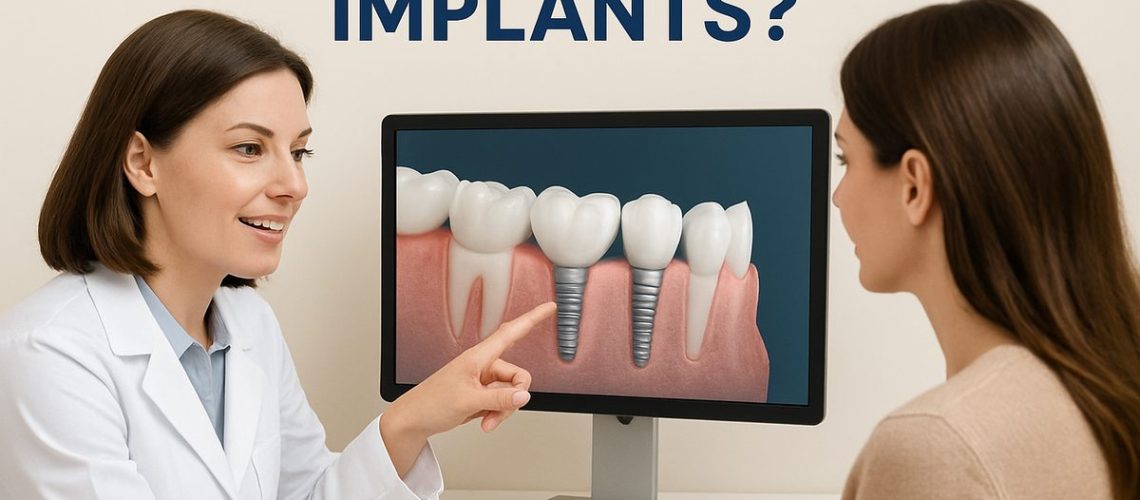The best dental implants can restore chewing, speech, and your smile. This article explains the options, typical costs, and how to choose the right solution so you can decide with confidence. You’ll learn how implants work, the main implant types, what makes the best dental implants in Dallas–Fort Worth, price factors, and key questions to ask at your consultation.
How dental implants work
Dental implants are metal or ceramic posts placed into the jaw to act like tooth roots. Over a few months they fuse to bone in a process called osseointegration, creating a stable base for a crown, bridge, or full-arch prosthetic. Implants protect nearby teeth and help stop bone loss that happens after tooth loss.
Types of dental implants and when they’re used
Endosteal (titanium) implants
Endosteal titanium implants are the most common. They are strong, well-researched, and work for single-tooth replacements or full arches. Pros: high success rates and many restoration options. Cons: they require good bone volume and healing time.
Zirconia (ceramic) implants
Zirconia implants are metal-free and often chosen for cosmetic goals or metal sensitivities. They look white and can reduce staining at the gumline. Limitations include fewer long-term studies and fewer restorative options compared with titanium.
Zygomatic implants
Zygomatic implants anchor in the cheekbone and are used for severe upper-jaw bone loss when traditional implants won’t work without extensive grafting. They allow fixed teeth without long grafting timelines but require a specialist experienced in the technique.
All‑on‑4 and single-day full‑arch restorations
All‑on‑4 uses four implants per arch to support a fixed bridge and can often be done same-day with provisional teeth. Single-day full-arch restores function quickly but may require staged restorative steps for the final prosthesis.
What makes the best dental implants?
The best dental implants combine proven implant materials and design, high-quality prosthetics, precise digital planning, and a skilled surgeon with long-term outcomes. Technology like 3D CBCT scans, guided surgery, and in-house lab fabrication improves fit and predictability. Long-term follow-up and clear warranties also matter when choosing the best dental implants in Dallas–Fort Worth.
Costs and what affects price
A single implant with crown typically ranges widely depending on region and complexity. Full-arch treatments cost more but vary by implant type and materials. Added costs include bone grafts, sinus lifts, sedation, same-day provisional prosthetics, and lab or custom abutment fees. Ask for an itemized estimate and options to spread treatment over phases to manage cost.
How to choose the right implant and surgeon
Ask about board certification, the number of similar cases performed, use of CBCT and guided surgery, and in-house lab capabilities. Ask for before-and-after photos, complication rates, warranty, and sedation choices. Red flags: vague answers, pressure to choose a high-cost option quickly, or no clear treatment plan.
Why patients choose Texas Center for Oral Surgery & Dental Implants
Patients pick Texas Center for Oral Surgery & Dental Implants for their board-certified surgeons, on-site digital lab, and advanced tech like dynamic surgical guidance and same-day full-arch options. The team offers IV sedation, minimally invasive techniques, and clear pricing while serving the Dallas–Fort Worth Metroplex.
Next steps: consultation checklist and scheduling
Bring prior X-rays, a list of medications, and a summary of dental history to your consult. Ask for a digital CBCT scan, a written plan with timeline and costs, and financing options. To explore the best dental implants in Dallas–Fort Worth, schedule an evaluation to review your options and get a personalized plan.

